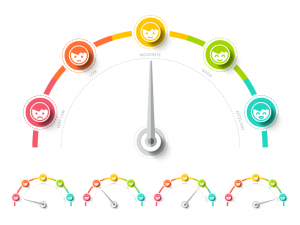Good or Better Primary Computing?

Computing Observation
Inspired by the great set of questions produced by Miles Berry – for school experience tutors to ask when observing trainee teachers in Computing – I’ve produced my own set for schools to reflect on regarding their computing provision which, hopefully, can be used to inform future plans.
The questions cover most of David Brown’s (former HMI lead for Computing) thoughts for inspecting computing – with a few tweaks!
Curriculum & Planning
- Is the curriculum imaginative and stimulating and skillfully designed to match to the full range of pupils’ needs to ensure highly effective continuity and progression in their learning?
- Are schemes of work differentiated to meet the needs of different groups of pupils?
- Is the curriculum broad and balanced with all three computing strands (Computer Science, Information Technology and Digital Literacy) covered well for all pupils, in computing lessons and/or across the school curriculum?
- Are pupils expected to use their computing knowledge and understanding in realistic and challenging situations?
- Is there an age-appropriate e-safety curriculum that is flexible, relevant and engages pupils’ interest; that is used to promote e-safety through teaching pupils how to stay safe, how to protect themselves from harm and how to take responsibility for their own and others’ safety?
Subject Leadership
- Is leadership informed by a high level of computing subject expertise and vision which has a clear impact on the performance and practice of members of the department and on outcomes for pupils?
- Is there a strong track record of innovation in computing; subject reviews, self-evaluation and improvement planning that are well-informed by current best practice in computing education?
- Does subject leadership inspire confidence and commitment from pupils and colleagues; are there effective strategies to delegate subject responsibilities where appropriate and to share good practice and secure high quality professional development in the subject?
- Is professional development well-targeted and thoroughly evaluated for its impact; does it include up-to-date training for teaching assistants and technical support staff?
- Does computing have a very high profile in the life of the school and is at the cutting edge of initiatives to raise pupil progress?
- Is access to computing equipment outstanding and does the school promote the use of mobile technologies?
- Is e-safety a priority across all areas of the school, with all teaching and non-teaching staff receiving regular and up-to-date training in e-safety?
- Are rigorous e-safety policies and procedures in place, written in plain English, contributed to by the whole school, updated regularly and ratified by governors?
Pedagogy
- Is computing set in meaningful contexts that allow pupils to make authentic links between computing and other subjects?
- Are opportunities to exploit cross-curricular links embraced in creative, engaging ways that are productive in strengthening pupils’ learning in computing?
- Is computational thinking (analytical problem solving: finding solutions to ‘problems’ using logical reasoning and systematic approaches) taught, developed and applied throughout the school’s the curriculum?
- Are pupils encouraged to collaborate, share and reflect on their work in computing?
- Is learning and progression rooted in creative exploration rather than confined to following instructions and/or instruction led tutorials?
Teaching
- Is teaching informed by excellent subject knowledge and understanding of continuing developments in teaching and learning in computing?
- Do teachers have a high level of competence and expertise, both in terms of their specialist knowledge and technical skills and in their understanding of active learning in computing?
- Is teaching rooted in the development of pupils’ understanding of important concepts and progression within the lesson and over time?
- Does teachers use assessment to inform planning?
- Does teaching enable pupils to make connections between topics and to see the role of computing in wider contexts?
- Do lessons address pupils’ misconceptions very effectively; teachers’ responses to pupils’ questions are accurate and highly effective in stimulating further thought?
- Do teachers communicate high expectations, enthusiasm and passion about computing to pupils and challenge and inspire pupils?
- Do teachers use a very wide range of innovative and imaginative resources and teaching strategies to stimulate pupils’ active participation in their learning?
Learning & Assessment
- Do pupils demonstrate excellent understanding of all three strands of the computing curriculum?
- Do pupils consistently use their knowledge and understanding of computing effectively in written and verbal explanations and can solve challenging problems?
- Do pupils make highly effective use of a range of, age and ability appropriate, software, tools and technologies?
- Do pupils show independence in their use of computing across all three strands of the curriculum and exhibit positive attitudes towards the subject and working constructively with others?
- Do pupils show high levels of originality, imagination, creativity and innovation in their understanding and application of skills in computing?



